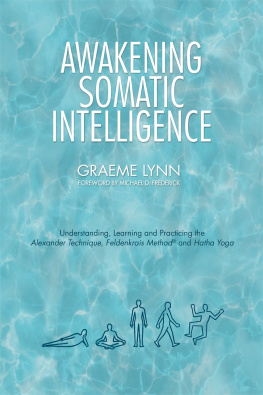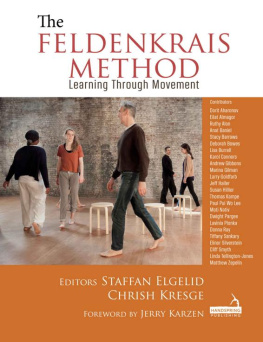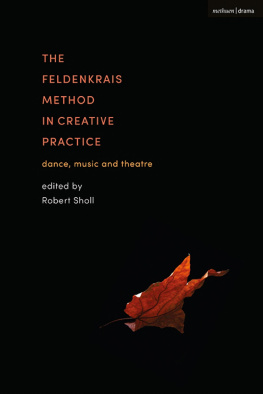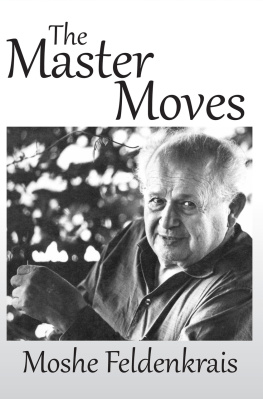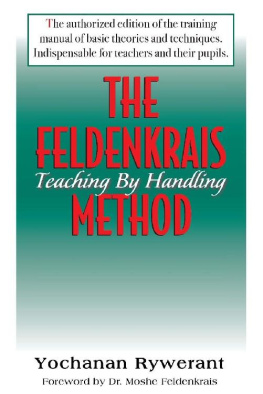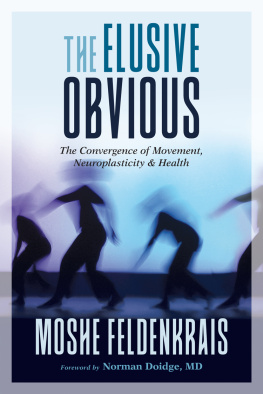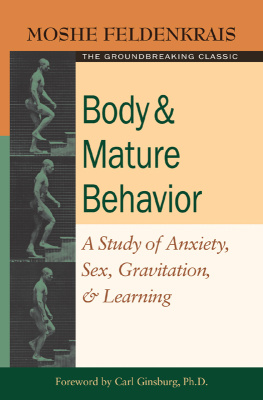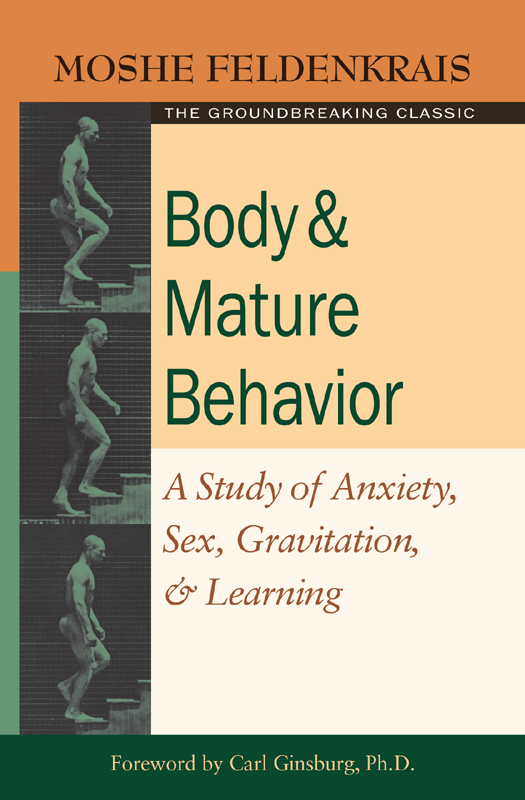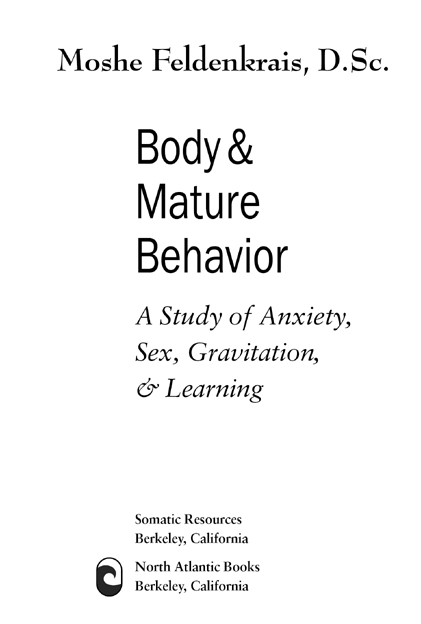Praise for the original 1949 edition:
The author advances the thesis that the study and re-education of muscular behavior patterns, along with the analysis of the mental processes, are more effective in the understanding and treatment of emotional problems. The concept of muscular pattern and neurosis are well presented bridging the gaps among the various related disciplines in the study of human behavior problems.
New England Journal of Medicine
The author shows [that] pathogenic or harmful muscular patterns are just as important an element in neurotic performance as are the mental mechanisms involved. A considerable body of erudition is displayed in this volume.
Quarterly Review of Biology
This book is undoubtedly an important contribution to the study of human behavior in health and disease, and it should be a great interest to psychiatrists, orthpaedic surgeons, physiotherapists, and medical men in general.
Feldenkrais has given an excellent survey of a subject which has not yet received the attention it merits, namely, the relationship of bodily postures and movements to emotional states.
Professor Kenneth Walker, The Listener
M. Feldenkrais take up primarily a position which will be accepted by most medically trained thinkers as refreshingly sound, namely, that body and mind are not separate and distinct entities, but two facets of personality.
There is much in the book to commend and there is plenty of stimulating and occasionally provocative matter.
The Medical Journal of Australia
Also by Moshe Feldenkrais
The Potent Self:
A Study of Spontaneity and Compulsion
Awareness Through Movement
Body Awareness as Healing Therapy:
The Case of Nora
The Elusive Obvious
The Master Moves
Practical Unarmed Combat
Judo: The Art of Defense and Attack
Higher JudoGroundwork
Copyright 1949 by Moshe Feldenkrais. Copyright 2005 by Michel Silice. All rights reserved. No portion of this book, except for brief review, may be reproduced, stored in a retrieval system, or transmitted in any form or by any meanselectronic, mechanical, photocopying, recording, or otherwisewithout written permission of the publisher. For information contact North Atlantic Books.
Published by North Atlantic Books, P.O. Box 12327, Berkeley, California 94712 and Somatic Resources, 830 Bancroft Way, Berkeley, California 94710
Cover photograph: Man Walking Upstairs by Eadweard Muybridge
Cover design by Paula Morrison
Body and Mature Behavior: A Study of Anxiety, Sex, Gravitation, and Learning is sponsored by the Society for the Study of Native Arts and Sciences, a nonprofit educational corporation whose goals are to develop an educational and cross-cultural perspective linking various scientific, social, and artistic fields; to nurture a holistic view of arts, sciences, humanities, and healing; and to publish and distribute literature on the relationship of mind, body, and nature.
North Atlantic Books publications are available through most bookstores. For further information, visit our website at www.northatlanticbooks.com or call 800-733-3000.
eISBN: 978-1-58394-807-1
The Library of Congress has cataloged the print edition as follows: Feldenkrais, Mosh, 1904
Body and mature behavior : a study of anxiety, sex, gravitation, and learning / by Mosh Feldenkrais; foreword by Carl Ginsburg.
p.; cm.
Originally published: London : Routledge & Kegan Paul, 1949.
1. Psychophysiology. 2. Human behavior. 3. Child development. 4. Human locomotionPsychological aspects. 5. PosturePsychological aspects. 6. AnxietyPhysiological aspects. 7. Sex (Biology) 8. Gravitation. 9. Learning, Psychology of.
[DNLM: 1. Behavior. 2. Anxietypsychology. 3. Fatigue. 4. Learning. 5. Posture. 6. Sexual Behaviorphysiology. BF 698 F312b 1949ab] I. Title.
QP360.F46 2005
612.76dc22
2005011825
v3.1
Contents
Acknowledgments
The substance of this book was presented before the Association of Scientific Workers at Fairlie, Scotland, in a series of lectures given in 194344.
I wish to thank Professor J. D. Bernal, F.R.S., Professor Solly Zuckerman, F.R.S., and his colleague, specialist in posture and growth, for reading the manuscript and for valuable suggestions. I am grateful to my friends Mr. and Mrs. S. Byard, W. Halliday, and R. B. Serle for their patient listening, to Dr. G. D. Morgan for clarifying my ideas on some points in psychology.
I am especially grateful to my friend R. B. Serle for repeated reading and correcting of the manuscript and Miss Dorothy Smith for typing it.
I owe a great debt of gratitude to Mrs. Vera F. Salomons and Mrs. Charlotte Nissen whose friendship made this work possible.
M.F.
BM/Moshe,
London, W.C.1.
Foreword
Carl Ginsburg, Ph.D.
W e human beings often have little awareness of some of our major accomplishments as learners. From birth to the age of two, for example, we perform remarkable feats of learning. In this timeframe the great majority of us learn to stand and balance on a very narrow base of support, and then advance to walking on two feet of very small proportions. If there is no interference with a childs learning, the head is wonderfully balanced on the erect spine. We develop a considerable repertoire of actions and abilities. And we must not forget that we also begin to speak, a feat which requires remarkable coordination of breathing, and moving the lips, palate, and mouth, and then air through the larynx to produce a great variety of sound variations. At the same time, we learn to coordinate ourselves in the social domain of language where we connect with other humans.
Since we are such capable learners, we also are capable of mislearning in the years to follow. We succumb to pressures from the family and society to control our behavior according to what is deemed correct. We override our natural learned abilities, which are often beautifully organized at the beginning, with attempts to deal with emotional upheavals and our fear of not appearing adequate. The net result is interference with ourselves in our development. We grow up with limitations and restrictions that are unnecessary. As adults we are then driven to correct ourselves and seek therapies to expose the fault in our past that led to our current misery.
It was these observations about human learning and its failure that led Moshe Feldenkrais, as a young physicist and engineer and teacher of judo, to begin the investigations that led to his publishing a remarkable book that pointed to a new solution to this human dilemma. Body and Mature Behavior was published in 1949 in England by Routledge and Kegan Paul at a time when the concerns of society were directed much more toward the psyche, and there was little appreciation of the unity of psyche and soma as the ground of our living. There were, of course, other pioneers exploring awareness practices and teaching somatic exercises in the first part of the twentieth century. The idea in the air at the time was of a unity of mind and body from the practical point of view. On the other hand, no one had tried to put together the evidence from physiology, psychology, and what was known from neuroscience to support a vision of how we could improve ourselves through learning rather than seeking cures.


